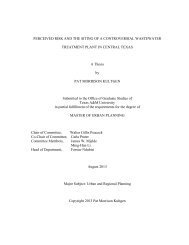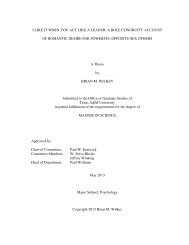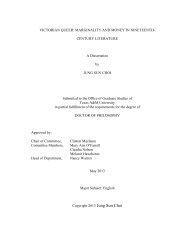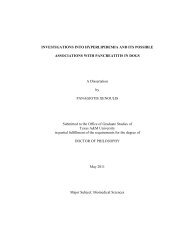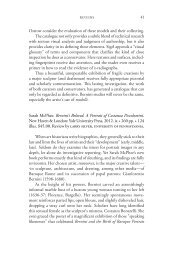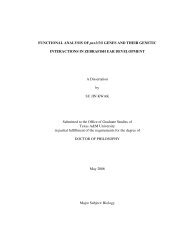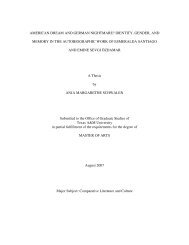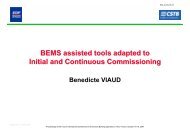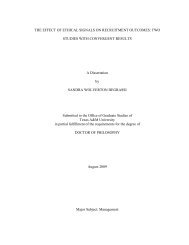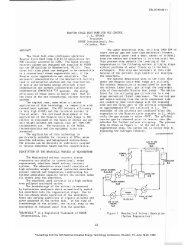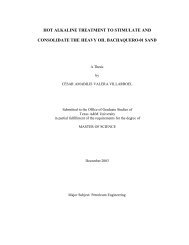A Dissertation by GRACE HUI-CHIN LIN Submitted to the Office of ...
A Dissertation by GRACE HUI-CHIN LIN Submitted to the Office of ...
A Dissertation by GRACE HUI-CHIN LIN Submitted to the Office of ...
You also want an ePaper? Increase the reach of your titles
YUMPU automatically turns print PDFs into web optimized ePapers that Google loves.
Themes Emerged from Students’ Perceptions about <strong>the</strong> Message Abandonment<br />
Strategy<br />
This study suggested that <strong>the</strong> issue <strong>of</strong> “time-saving” was associated with<br />
students’ decision <strong>to</strong> use <strong>the</strong> message abandonment strategy in communication. Also,<br />
it revealed that <strong>the</strong> message abandonment strategy might <strong>of</strong>fer a function <strong>of</strong> saving<br />
face.<br />
First <strong>of</strong> all, Sung Ru’s feedback actually suggested that when <strong>the</strong> discussion<br />
time is longer, <strong>the</strong> message abandonment strategy would be used less frequently <strong>by</strong><br />
<strong>the</strong> students. In contrast, if <strong>the</strong> students were allowed <strong>to</strong> speak in a formal way for a<br />
longer time, <strong>the</strong> o<strong>the</strong>r strategies, such as <strong>the</strong> restructuring strategy, interlanguage<br />
strategy, or cooperation strategy should be applied so <strong>the</strong> message abandonment<br />
would not be as useful.<br />
Also, Jiun Sheng observed that when <strong>the</strong> in-class group discussion time<br />
assigned <strong>by</strong> <strong>the</strong> lecturer was not long enough, many students frequently abandoned<br />
messages that were not unders<strong>to</strong>od <strong>by</strong> <strong>the</strong>ir partners. Interestingly, Jiun Sheng<br />
observed a systematic relation between <strong>the</strong> use <strong>of</strong> abandonment strategy and time<br />
limitations in class discussions. Jiun Sheng perceived that, when <strong>the</strong> class discussion<br />
time allowed <strong>by</strong> <strong>the</strong> trainer was not long enough, his classmates would resort <strong>to</strong><br />
abandonment strategy more <strong>of</strong>ten and not try <strong>to</strong> explain or describe <strong>the</strong> high-level<br />
lexis. Because <strong>the</strong> students did not have enough time <strong>to</strong> contemplate how <strong>to</strong> express<br />
<strong>the</strong>mselves, <strong>the</strong>y chose <strong>to</strong> omit <strong>the</strong> message <strong>the</strong>y thought would be <strong>to</strong>o<br />
time-consuming.<br />
Fur<strong>the</strong>rmore, <strong>the</strong> second major <strong>the</strong>me for <strong>the</strong> second research question was<br />
that using <strong>the</strong> message abandonment strategy might save face for lower-level<br />
163



